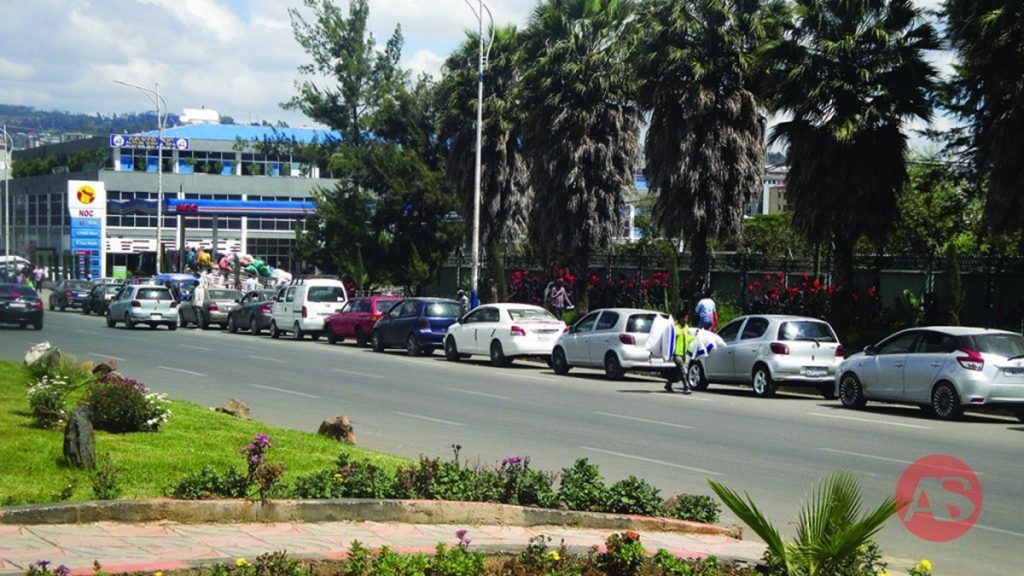The Ethiopian government has once again increased fuel prices, raising concerns among citizens already grappling with widespread shortages and the rising cost of living. The new prices took effect on March 23, 2025, in Addis Ababa, further intensifying the struggles of commuters and transport operators.
According to the Ministry of Trade and Regional Integration, the price of gasoil has increased to 112.67 birr per liter, marking an 11% hike. Similarly, diesel and kerosene prices now stand at 107.93 birr per liter, reflecting a 9% increase. This adjustment is part of the government’s quarterly fuel price review, but many citizens are alarmed that the latest increment comes less than three months after the last review.
Prime Minister Abiy Ahmed recently addressed the issue in parliament, revealing that the government is heavily subsidizing fuel to cushion the economic impact. He disclosed that while global market prices stand at 129 birr per liter, the government covers 28 birr per liter in subsidies, ensuring that citizens buy at a reduced rate of 101 birr per liter. Despite this intervention, fuel shortages persist, forcing drivers to seek alternative sources, including the black market.
Many Ethiopian cities, including Addis Ababa, Adama, and Bahir Dar, are experiencing fuel shortages. Reports indicate that in the Afar region, Bajaj (three-wheeler taxi) operators have struggled to buy gasoline from official stations for nearly a year. As a result, they are left with no option but to buy from the black market, where prices have skyrocketed to 300 birr per liter. Similarly, in the Amhara region, authorities have imposed a weekly fuel quota system due to acute shortages, causing black-market prices to surge to 225 birr per liter.
Hawassa, the capital of Sidama Regional State, is also experiencing a worsening crisis. Drivers in the city complain of the near impossibility of buying fuel at regulated prices, blaming widespread hoarding and illegal sales for the situation. The scarcity is causing transport fares to rise, further burdening citizens who are already struggling with inflation and economic difficulties.
While the government maintains that the price hikes and subsidies are necessary measures, many Ethiopians believe that the situation is being exacerbated by hoarding, smuggling, and ineffective regulations. Critics argue that without proper enforcement, the black market will continue to thrive, making fuel inaccessible to ordinary citizens.
As the crisis deepens, calls for urgent intervention are growing louder. Citizens and transport operators are urging the government to implement stronger measures to curb black-market activities, increase fuel supply, and provide long-term solutions to ensure stability in the country’s energy sector.
